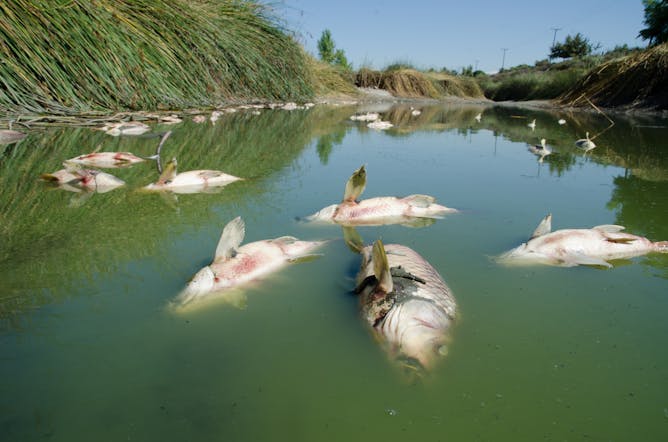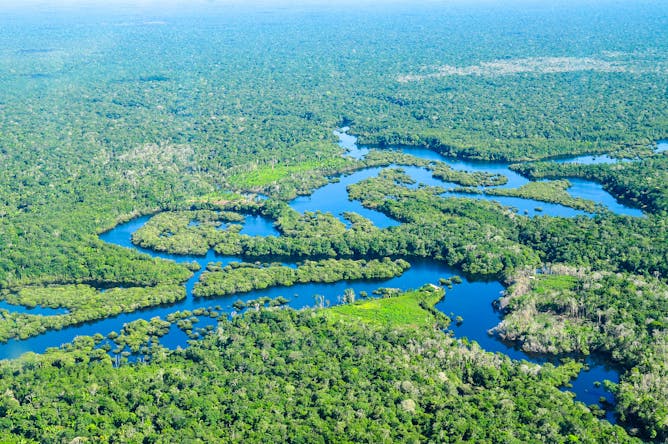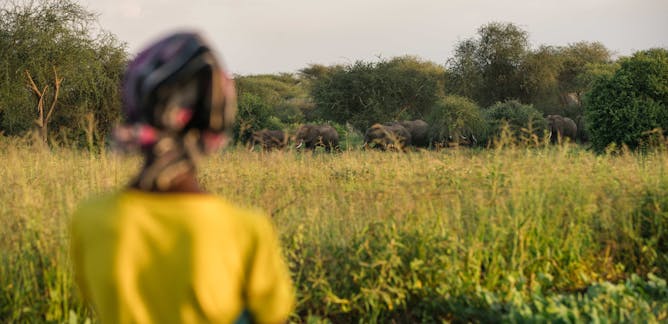|
A new report from the WWF says that 60% of the world’s vertebrate animal population has been wiped out by human activity since 1970. The report also highlights that the Earth is losing biodiversity at a rate seen only during mass extinctions. Ecologist Tom Oliver explains the danger of our present course, and outlines the planetary consequences of crossing this “tipping point”.
Just 20 countries are home to 94% of the world’s remaining wilderness — vast tracts of untamed land and sea which are often strongholds for endangered species. These can be saved, but the success depends on the ‘mega-wilderness’ nations, like Brazil and Russia. James Allan, James Watson, Jasmine Lee and Kendall Jones explain how legislation, rewarding good behaviour and preventing infrastructure expansion all play a key role.
|

Shutterstock
Tom Oliver, University of Reading
A new report by the WWF finds 60% losses in vertebrate populations since 1970.
|

Brazil, home to the Amazon, is one of just five ‘mega-wilderness’ countries.
CIFOR
James Allan, The University of Queensland; James Watson, The University of Queensland; Jasmine Lee, The University of Queensland; Kendall Jones, The University of Queensland
More than two-thirds of Earth's remaining wilderness is in the hands of just five countries, according to a new global map. A concerted conservation effort is needed to save our last wild places.
|
Environment
|

Jevgeniy Bluwstein, University of Fribourg; Jens Friis Lund, University of Copenhagen; Peadar Brehony, University of Cambridge
Narratives about successful community-based conservation efforts in Tanzania need to be probed.
| |

Astrid Kause, University of Leeds
People may be more willing to share scarce resources they really need than apocalyptic Hollywood movies may suggest.
|
|
|
Arts
|
-
Dan Wylie, Rhodes University
Understanding stories – those of the murderous as well as of the compassionate – is vital to generating the critical mass necessary to save natural environments and their multiple denizens.
|
|
Politics
|
-
Justice Tankebe, University of Cambridge
Poor supervision, poor training, and unfair treatment of lower-ranked officers make misconduct more likely to happen among Ghana's police force.
|
|